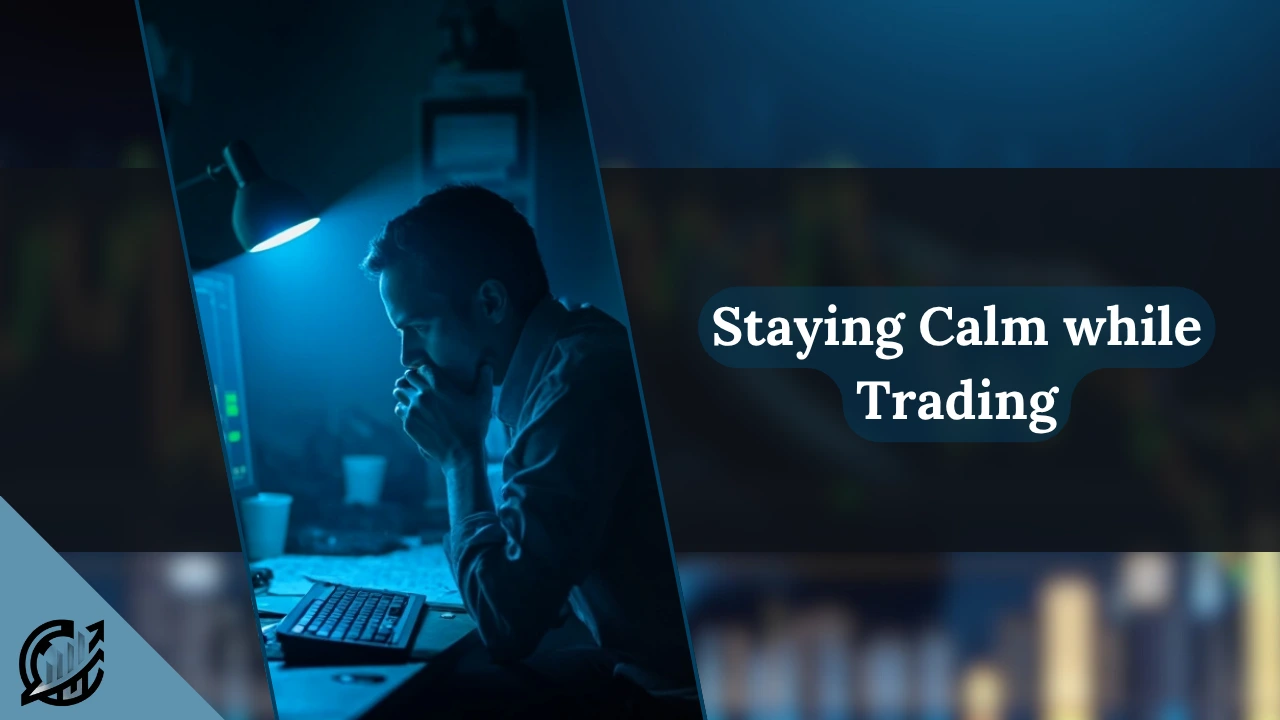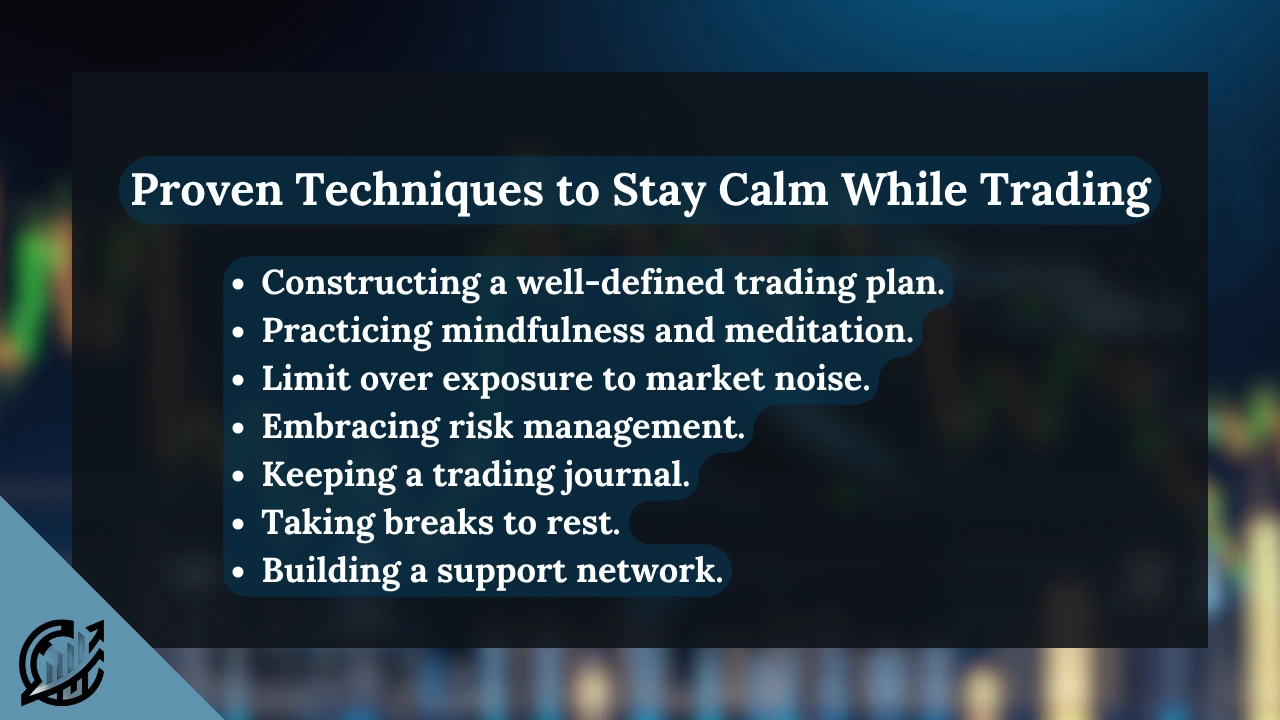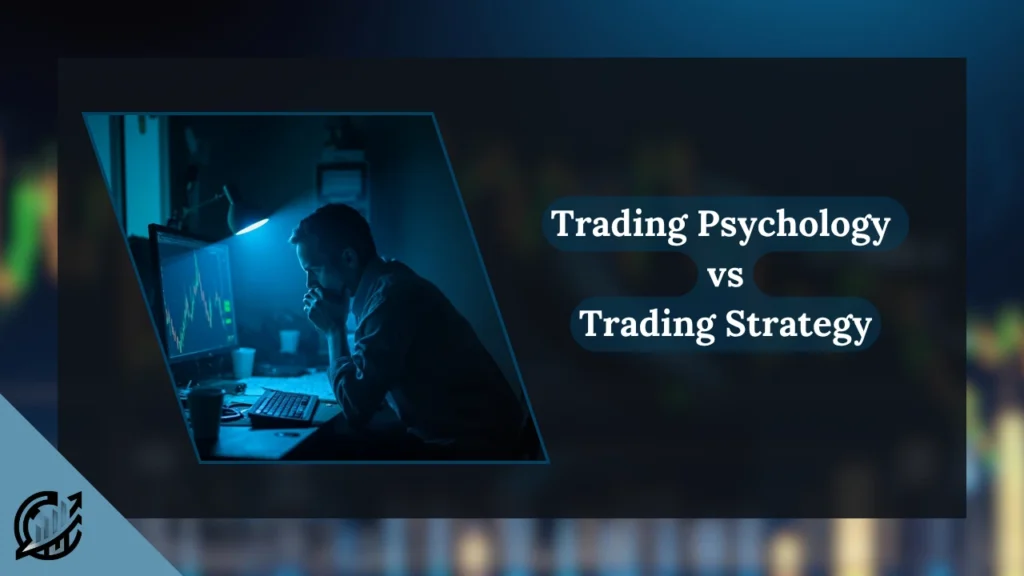
Table of Contents
In trading, emotional ups and downs are common. In the fast-paced nature of financial markets can sometime disturb even the most experienced trader’s trading mindset. For beginners, mastering trading psychology is critical to make sound decisions and achieving long-term success. Learning how to stay calm while trading is not just a skill, it is a game-changing factor that separates losers from winners.
This article explores seven proven techniques for calm trading to help you maintain peacefulness of mind, sharpen your focus, and navigate the market with confidence. It also addresses the common mistakes that results in failure.
Importance of Calmness in Trading
The uncertain nature of market is a big problem that traders have to deal with. During that time emotional reactions like fear, greed, or frustration can lead to impulsive decisions. Most of the time irregular market conditions encourage impulsive decision-making that become a major reason of trading failure. Most well-known situations are panic selling during a dip and chasing a runaway stock.
There are various studies that shows that traders with higher emotional control achieved up to 20% better returns than their less disciplined peers. Learning calmness in trading, traders reduce stress, improve decision-making, and build the mental toughness needed to thrive in high-pressure situation.
Proven Techniques to Stay Calm While Trading
Here are seven actionable strategies to help you master calmness in trading and maintain your cool in any market scenario:

Develop a Solid Trading Plan
In trading psychology, it is the first among other technique and strategies. A well-defined trading plan act as your roadmap, reducing uncertainty and emotional interference. Trading plan, in general, include entry and exit rules, risk management strategies, and specific goals.
A trader should know about their entries and exits rules. Risk management strategies include position sizing, stop-loss levels, and risk/reward ratios. Setting goals contain whether you are aspiring for weekly targets or monthly targets.
Having a pre-set plan removes the temptation of impulsive decision-making driven by fear or excitement. For example, if a stock drops 5%, your plan might dictate an automatic exit. This prevents you from being panic. Review and refine your trading plan weekly or monthly because of changing market conditions.
Practice Mindfulness and Meditation
It is a powerful tool for staying calm while trading. Regular meditation can lower stress hormones like cortisol. Techniques like deep breathing or body scans help you stay present. This prevents your mind from spiraling during market swings.
Before a trading session, take five deep breaths. This simple practice slows your heart rate and sharpens focus.
Limit Overexposure to Market Noise
As you shift in lower timeframes, you will notice more noise in price action. Similarly, when you go through trading forum platforms, social media and Telegram groups, you will notice a panic situation there. It will fuel anxiety.
They provide overloaded which often lead to second-guessing your strategy. There is a remedy that set specific times to review your positions. You can do this in important times (kill zones) of London trading session and New York trading session. You can use tools like TradingView to set price alerts.
Embrace Risk Management
One of the biggest triggers for stress is over-leveraging. When you risk more than you can afford to lose, you can never maintain calmness in trading. Effective risk management ensures that no single trade can wipe you out.
There is a common rule to risk no more than 1-2% of your capital. Use stop-loss orders to cap losses automatically and calculate position sizes based on your risk tolerance.
Keep a Trading Journal
A trading journal can be used as a personal feedback loop. It is advised to record every trade. This includes its setup, emotions during the trade, and the outcome. Reviewing your past performance helps identify emotional patterns.
Take Breaks to Reset
It is important to take break from screen. Trading for hours can lead to mental fatigue and impair decision-making. Try to step away from your screen every 60-90-minutes, even for five minutes to stretch, hydrate, or walk. If trading sessions are intense, schedule longer breaks to recharge.
Build a Support Network
Trading can feel isolating, but connecting with other traders can normalize challenges and provide perspective. Join trading communities for growth purposes and share experiences and strategies. Alternatively, you can discuss your trades with a mentor or coach who can offer objective feedback.
Studies shows that when you surround yourself with like-minded people, it reinforces discipline and keeps emotions in check.
How to Implement These Techniques
To make these techniques work, start with small capital. Pick 1-2 techniques and practice them for 30 days, track your emotional state and trading performance to measure progress, and gradually incorporate more techniques as you build confidence.
Remember, consistency is key. With the passage of time, these habits will become second nature, and transform all this into an automatic response to market stress.
Common Mistakes to Avoid
Even with the best intention, traders can slip up. These are the mistake to watch for:
- Ignoring your trading plan
- Overtrading
- Neglecting Self-Care
These are the traps that you should avoid for better trading if you are seeking calmness in trading.
Final Thoughts
Mastering calmness in trading is a skill that can uphold your performance and longevity in the markets. Implementing these seven proven techniques can help in building emotional control that is needed to survive in any market. Start with one or two strategies, track your progress and refine your approach over time.
FAQs
Why is staying calm while trading important?
Staying calm while trading prevents emotional decisions like panic selling or overtrading, which can lead to losses. A clear mind improves focus and aligns your actions with your trading plan.
How can mindfulness help with trading?
It reduces stress and enhances focus by keeping you present. You can use techniques like meditation. It lowers anxiety and helps you stick to your strategy during market volatility.
How to avoid overtrading?
Overtrading is an emotional trap. In order to eliminate this, set a daily trade limit in your trading plan and stick to it. Take breaks and review your trading journal to spot over trading patterns.
I’m Abdullah Shah, a content writer with three years of experience in crafting engaging and informative content. My background in market analysis complements my work, allowing me to create content that resonates with audiences. I’m also a seasoned practitioner in the forex and crypto markets, with a strong foundation and deep interest in finance. My passion for the financial world drives me to produce content that is both insightful and valuable for those interested in understanding market trends and financial strategies.





